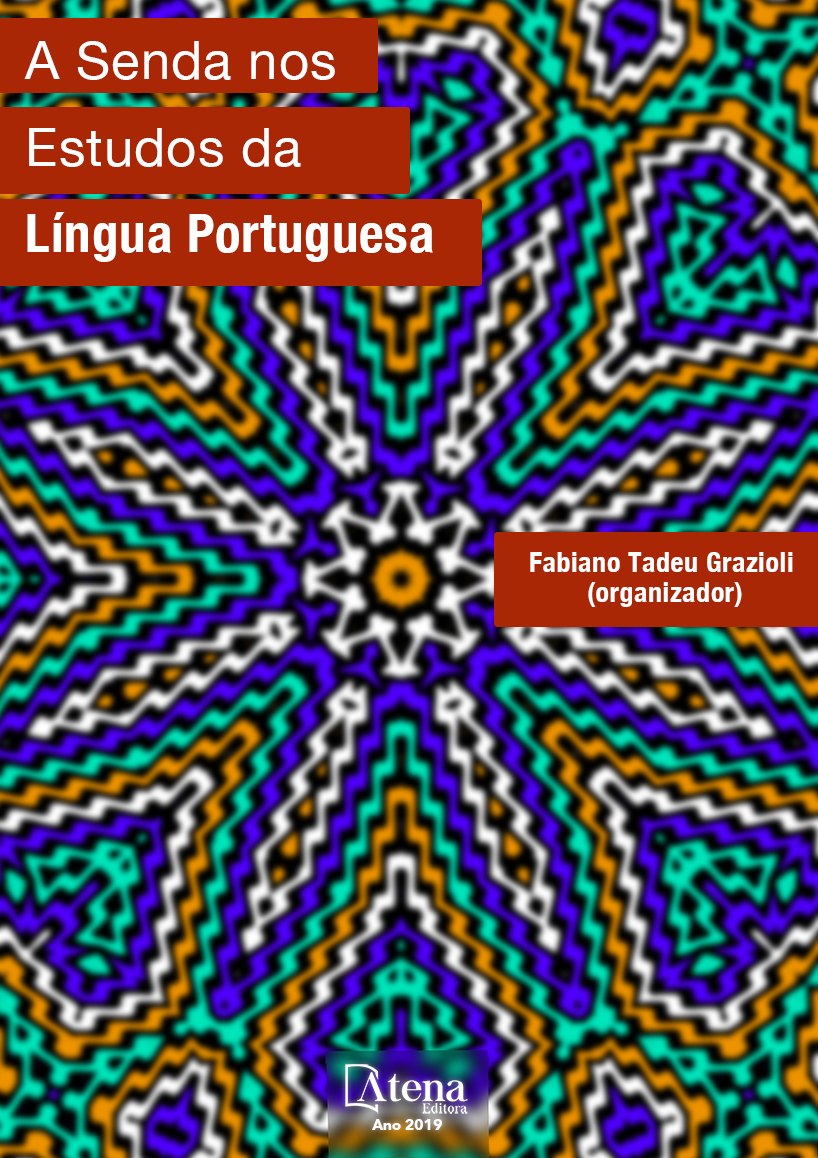
ANÁLISE DO DISCURSO ESTÉTICO E OUTROS GÊNEROS TEXTUAIS PARA FORMAÇÃO DE PROFESSORES: UM PROCESSO METAENUNCIATIVO DE MÚLTIPLAS LEITURAS
Este artigo se propõe a analisar
o discurso estético no recorte de múltiplas
leituras: poesia, pintura e outros gêneros
textuais. Objetiva compreender o processo
metaenunciativo de (re) construção de sentidos
na densidade dialógica dos discursos estéticos
e textuais via enunciados parafrásicos, aporte
teórico para a formação de professores.
Orienta-se em pressupostos formulados por
Authier-Révuz (2004), Bakhtin (1981, 1997,
1098, 1999, 2011), Bakhtin/ Voloshinov (1981,
1992), Brait (1994, 2001), Cumming (1998),
Fuchs (1992), Gonçalves (1989), dentre outros.
A análise se expande pela composição de
recortes angulares sobre a Série Pictórica da
obra “Tempo Espanhol”, de Murilo Mendes:
“Lições de Espanha” (Nóbrega, 2004) que
expõe a arquitetônica dos gêneros discursivos
e textuais: o poema Guernica de Murilo Mendes
(1994), a tela Guernica de Picasso (1937), e
resenhas em paráfrases (Albuquerque, 2006)
a fim de verificar as marcas linguísticas nos
enunciados parafrásicos suscitados na (re)
construção de sentido do texto ou do discurso
a partir do contexto histórico-social nas
fronteiras das investigações científicas sobre o
horizonte do “Grande Tempo” Bakhtin (2011).
Nossa proposta é contribuir para a construção
dos diálogos pedagógicos na alternância
dos sujeitos professor/aluno/aluno/professor
na dinâmica das atividades acadêmicas em
sala de aula. Como estratégia na/da prática
docente se propõe instrumentalizar o método
dialógico na perspectiva bakhtiniana no limite
do exercício intensivo da leitura e crítica
dialógicas para a formação de sujeitos leitores
ativos e autônomos. Este trabalho constitui
em suas particularidades e singularidades
enunciativas confrontadas nas fronteiras do
discurso científico como síntese dos resultados
concretos das teses de Albuquerque (2008) e
Nóbrega (2004).
ANÁLISE DO DISCURSO ESTÉTICO E OUTROS GÊNEROS TEXTUAIS PARA FORMAÇÃO DE PROFESSORES: UM PROCESSO METAENUNCIATIVO DE MÚLTIPLAS LEITURAS
-
DOI: 10.22533/at.ed.9241924071
-
Palavras-chave: Leitura; Discurso; Metaenunciação de linguagens; Dialogismo.
-
Keywords: Reading; Speech; Metaenunciation of languages; Dialogism.
-
Abstract:
This article proposes to analyze
the aesthetic discourse in the cut of multiple
readings: poetry, painting and other textual
genres. It aims to understand the metaenunciative process of (re) construction of
senses in the dialogic density of aesthetic and textual discourses via paraphrasic
statements, theoretical contribution to the formation of teachers. It is based on
assumptions formulated by Authier-Révuz (2004), Bakhtin (1981, 1997, 1098, 1999,
2011), Bakhtin / Voloshinov (1981, 1992), Brait (1994, 2001), Cumming (1998), Fuchs
1992), Gonçalves (1989), among others. The analysis expands by the composition of
angular cut-outs on the Pictorial Series of Murilo Mendes’s “Spanish Time”: “Lessons
from Spain” (Nóbrega, 2004), which exposes the architectural of the discursive and
textual genres: Murilo Mendes’s Guernica poem (1994), Picasso’s Guernica screen
(1937), and paraphrases (Albuquerque, 2006) in order to verify the linguistic marks in
the paraphrasic utterances elicited in the (re) construction of text or discourse sense
from the historical context -social on the frontiers of scientific research on the horizon
of the “Great Time” Bakhtin (2011). Our proposal is to contribute to the construction
of pedagogical dialogues in the alternation of teacher / student / student / teacher
subjects in the dynamics of academic activities in the classroom. As a strategy in the
teaching practice, it is proposed to instrumentalize the dialogic method in the Bakhtinian
perspective at the limit of the intensive exercise of reading and dialogic criticism for
the formation of active and autonomous reader subjects. This work constitutes in
its particularities and enunciative singularities confronted at the frontiers of scientific
discourse as synthesis of the concrete results of the theses of Albuquerque (2008) and
Nóbrega (2004).
-
Número de páginas: 15
- Maria das Dores Oliveira de Albuquerque
- Maria Bernardete da Nóbrega


